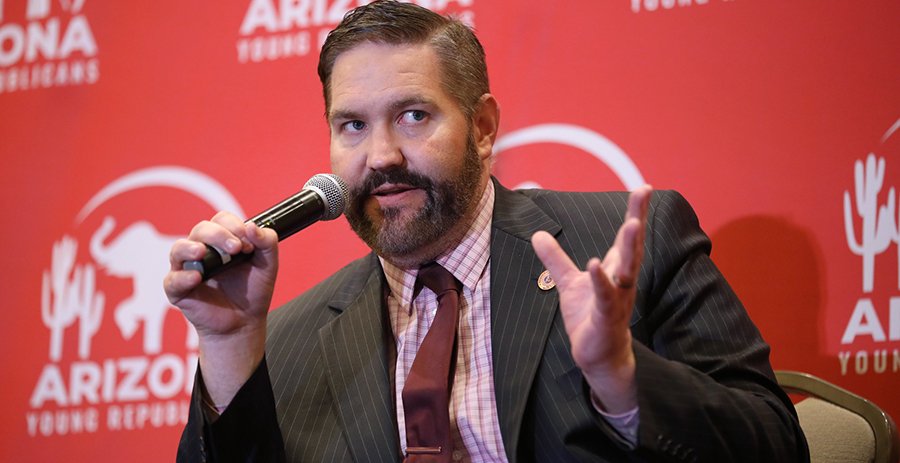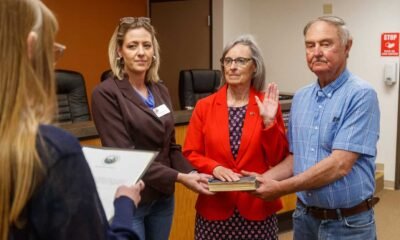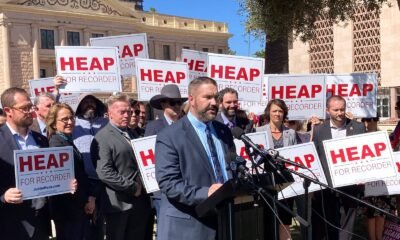2024 Election News
Maricopa County Recorder’s Fate Hinges on Legal Interpretation – Here’s What You Need to Know

Maricopa County is currently navigating a unique situation regarding its recorder’s office, prompting questions around constitutional interpretations and timelines.
Republican Justin Heap recently won the election, defeating Democratic candidate Tim Stringham. Although Heap was sworn in on Monday afternoon following his victory, the Arizona Constitution complicates his immediate assumption of the role.
Heap, who previously served as a state representative from Mesa, faces a restriction due to the Arizona Constitution. It prohibits members of the Legislature from assuming any other state, county, or city positions during the current term they were elected to serve. This stipulation remains critical since Heap’s legislative term does not officially conclude until noon on January 13, when his successor is set to be sworn in.
Thus, the question arises: who is the recorder until then? The answer is Stephen Richer, the incumbent who lost to Heap during the recent GOP primary. Richer, having first been elected to the role in 2020, asserts that the constitutional provision indicates he retains his position until Heap officially qualifies for the role.
This interpretation emphasizes a key point: the term of every elected official extends until their successor qualifies. Since Heap is not yet able to assume the office, Richer remains in charge for the interim week.
Richer, an attorney, confirmed that his understanding aligns with guidance received from the Maricopa County Attorney’s Office, which also corroborated his legal stand. However, Heap offers a contrasting perspective. He claims that his discussions with House attorneys indicate his legislative term ended with his swearing-in on Monday, allowing him to take his new role as the county’s recorder.
The ongoing debate over how long lawmakers serve in their respective positions is not unprecedented. A similar scenario unfolded in 1980 involving former state Rep. Arnold Jeffers, who faced a delay in assuming the role of Pima County Assessor due to the same constitutional limitations.
As Heap and Richer navigate these legal intricacies, questions linger about the existence of a functioning state Legislature during this transition. Heap acknowledged that effectively, there is no operating legislative body until new lawmakers are sworn in. Yet he humorously remarked that this gap in governance could ultimately benefit the people of Arizona.


















